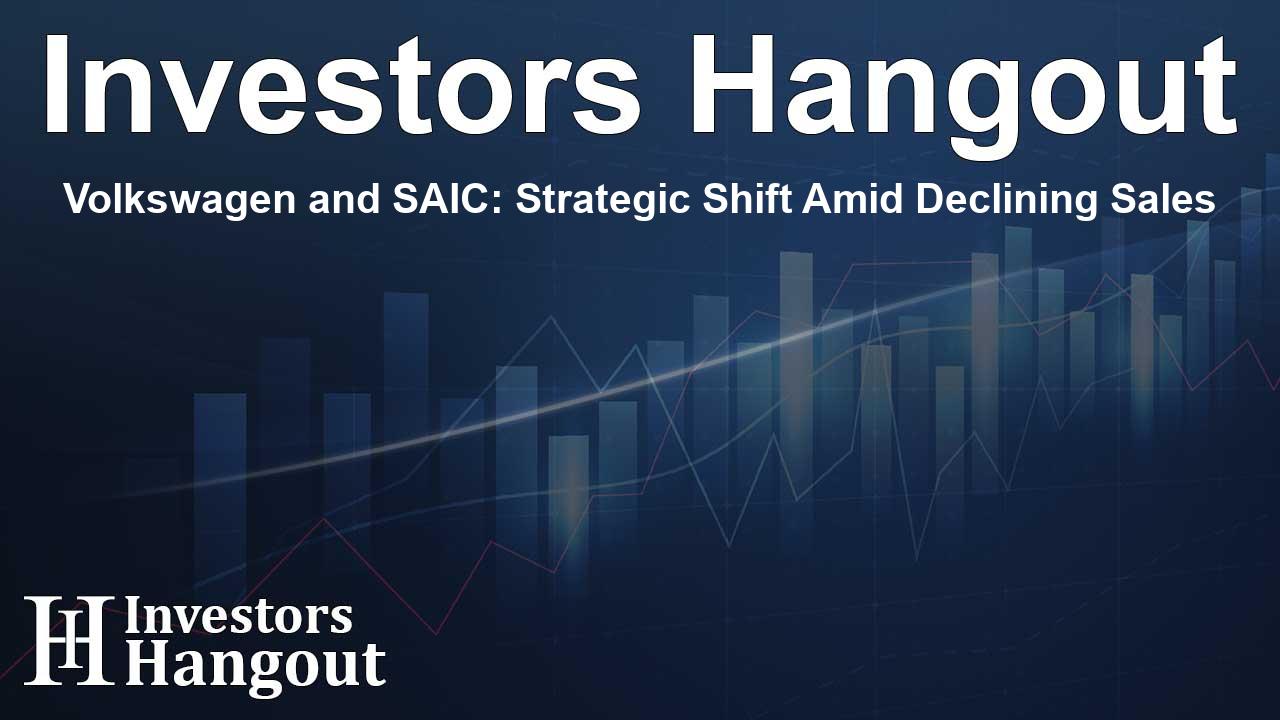Volkswagen and SAIC: Strategic Shift Amid Declining Sales

Volkswagen and SAIC Joint Venture Amid Market Changes
Volkswagen and its Chinese joint venture partner, SAIC, are navigating a challenging automotive landscape as they plan to close several plants in China. This move comes in response to slow demand for traditional combustion engine cars, as reported by Bloomberg News.
Impacts of Slow Demand on Production
The initial plant facing closure is located in Nanjing, which is known for manufacturing VW Passat and Skoda vehicles. This closure could occur as early as the coming year, signaling a significant shift in production strategy by the German carmaker.
Volkswagen's Response to Market Dynamics
Volkswagen has remained tight-lipped about any speculation related to the closures, emphasizing their focus on adjusting to evolving market conditions. The company recognizes that it is losing its strong foothold in the Chinese automotive market, a position it has held for many years.
Collaborations with New Technologies
In order to regain market share, Volkswagen is working closely with SAIC and other innovative partners like Xpeng. The goal is to introduce new models that are more aligned with current consumer preferences, particularly in the electric vehicle (EV) sector.
Facing Competition from Emerging Players
The race for dominance in the EV market is intensifying. Reports indicate that SAIC plans to reduce its workforce by 10% this year, a move reflecting the considerable drop in sales. This strategy is partly driven by competition from companies like BYD and Tesla, which have rapidly advanced in capturing significant EV market share.
Market Trends and Consumer Preferences
With changing regulations and a shift in consumer preferences towards more sustainable transportation options, automakers are required to adapt quickly. Volkswagen's partnerships are crucial as they explore new electric models that meet these emerging demands.
Your Thoughts on the Automotive Future
As a major player in the automotive industry, Volkswagen’s decisions will inevitably shape future trends in the market. The potential plant closures suggest a need for the company to rethink its strategy to remain competitive.
Frequently Asked Questions
What are the reasons behind Volkswagen's plant closures?
The closures are primarily due to declining demand for combustion engine vehicles and the need to adapt to electric vehicle trends.
Which plants are at risk of closure?
The initial plant at risk is located in Nanjing, which produces VW Passat and Skoda models.
How is Volkswagen responding to market challenges?
Volkswagen is focusing on partnerships and launching new electric models to regain competitiveness.
What impact will this have on jobs?
SAIC plans to cut 10% of its workforce at SAIC Volkswagen as a response to decreased sales.
Who are Volkswagen's main competitors in the EV market?
Main competitors include BYD and Tesla, which have seen substantial growth in electric vehicle sales.
About Investors Hangout
Investors Hangout is a leading online stock forum for financial discussion and learning, offering a wide range of free tools and resources. It draws in traders of all levels, who exchange market knowledge, investigate trading tactics, and keep an eye on industry developments in real time. Featuring financial articles, stock message boards, quotes, charts, company profiles, and live news updates. Through cooperative learning and a wealth of informational resources, it helps users from novices creating their first portfolios to experts honing their techniques. Join Investors Hangout today: https://investorshangout.com/
Disclaimer: The content of this article is solely for general informational purposes only; it does not represent legal, financial, or investment advice. Investors Hangout does not offer financial advice; the author is not a licensed financial advisor. Consult a qualified advisor before making any financial or investment decisions based on this article. The author's interpretation of publicly available data shapes the opinions presented here; as a result, they should not be taken as advice to purchase, sell, or hold any securities mentioned or any other investments. The author does not guarantee the accuracy, completeness, or timeliness of any material, providing it "as is." Information and market conditions may change; past performance is not indicative of future outcomes. If any of the material offered here is inaccurate, please contact us for corrections.